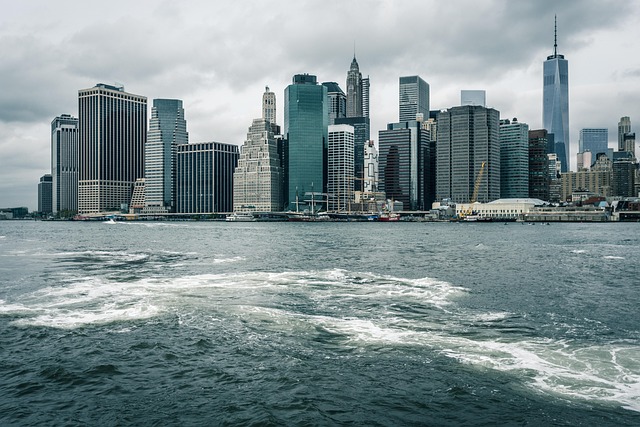Commercial zoning regulations in Karachi categorize areas for specific business uses, aiming to foster local economies, encourage sustainable practices, and preserve residential harmony. Shahra-e-Faisal, Karachi's bustling commercial spine, blends modern architecture and entrepreneurial energy, showcasing the city's dynamic business landscape. Current transformations focus on balancing commercial growth with enhanced urban livability through infrastructure upgrades, mixed-use developments, smart city technologies, and green spaces. However, strict zoning laws can hinder innovation and sector development, requiring a balance between urban order and diverse economic growth for Karachi's vibrant business scene.
Karachi, Pakistan’s bustling metropolis, has witnessed significant transformation through strategic commercial zoning. This article delves into the intricacies of commercial zoning on Shahra-e-Faisal, a pivotal business hub in the city. We explore its role in fostering economic growth, analyze planning and development strategies, and assess the impacts and challenges posed by zoning regulations. Understanding these dynamics is crucial for maximizing Karachi’s potential as a vibrant center of commerce.
- Understanding Commercial Zoning in Karachi
- Shahra-e-Faisal: A Hub for Business and Commerce
- Planning and Development Strategies for The Area
- Impacts and Challenges of Zoning Regulations
Understanding Commercial Zoning in Karachi

Commercial zoning plays a pivotal role in shaping Karachi’s urban landscape, dictating how spaces are utilized and developed. In this bustling metropolis, areas are meticulously classified to accommodate various business activities, ensuring optimal growth and functionality. The concept revolves around organizing land for specific commercial purposes, such as retail, offices, or industrial operations, allowing for efficient resource allocation and infrastructure development.
Karachi’s commercial zoning regulations vary across different sectors, each with unique characteristics. These zones are designed to support local economies, promote sustainable business practices, and maintain a harmonious balance between commerce and residential areas. Understanding these zoning patterns is essential for businesses looking to establish or expand their operations in Karachi, as it influences everything from property selection to planning permissions.
Shahra-e-Faisal: A Hub for Business and Commerce

Shahra-e-Faisal, often dubbed as the economic heartbeat of Karachi, is a vibrant and diverse commercial hub that has been meticulously designed to foster business growth and facilitate efficient commerce. This bustling thoroughfare stretches through the heart of the metropolis, acting as a vital link between various industrial, residential, and commercial areas. The strategic planning behind its development has made it a game-changer for the city’s economy, attracting both local and multinational businesses alike.
With a mix of modern skyscrapers, business complexes, and retail outlets, Shahra-e-Faisal offers an unparalleled environment for entrepreneurial activities. The area is a symphony of commercial zones, each catering to specific industries, ensuring a harmonious balance between different sectors. This diverse landscape not only enhances the city’s economic tapestry but also provides a robust framework for the exchange of goods and services, making it a testament to Karachi’s thriving business spirit.
Planning and Development Strategies for The Area

The planning and development strategies for Shahra-e-Faisal, Karachi, aim to balance commercial growth with urban livability. The area’s transformation into a bustling business hub has spurred initiatives to enhance infrastructure, improve traffic flow, and integrate green spaces. These efforts not only cater to the existing commercial establishments but also attract new investments by providing an optimized environment for businesses.
Key strategies involve rationalizing land use, promoting mixed-use developments, and adopting smart city technologies. The integration of residential, retail, and entertainment zones alongside commercial areas fosters a vibrant ecosystem. Additionally, focusing on sustainable development practices ensures that the area’s growth is both environmentally friendly and economically robust, reflecting Karachi’s commitment to evolving as a dynamic global metropolis.
Impacts and Challenges of Zoning Regulations

In Karachi, commercial zoning, particularly on Shahra-e-Faisal, is a double-edged sword. While it meticulously organizes and regulates business activities to ensure optimal urban development, it also presents significant challenges. One of the primary impacts is the restriction of businesses’ growth potential. Strict zoning laws often limit the types of industries that can operate in specific areas, hindering entrepreneurial ventures and innovation. This rigidity can discourage businesses from expanding or even establishing themselves in designated zones, potentially stunting economic growth.
Moreover, these regulations can lead to uneven development across different sectors. Certain areas may become hotspots for specific industries due to favorable zoning, creating a lopsided business landscape. Karachi’s Shahra-e-Faisal, known for its commercial prowess, could witness disparities where some segments thrive while others struggle to survive. Navigating these challenges requires a delicate balance between maintaining urban order and fostering a vibrant, diverse economic environment.
Shahra-e-Faisal, a prominent commercial center in Karachi, has established itself as a thriving business hub. Understanding the intricacies of commercial zoning is pivotal for unlocking the area’s full potential. By implementing strategic planning and development initiatives, Karachi can further enhance its reputation as a dynamic economic powerhouse. Despite challenges posed by zoning regulations, proactive measures to streamline processes and foster an investor-friendly environment will contribute to the sustainable growth of this vital business district in the heart of Karachi.


Leave a Reply
You must be logged in to post a comment.